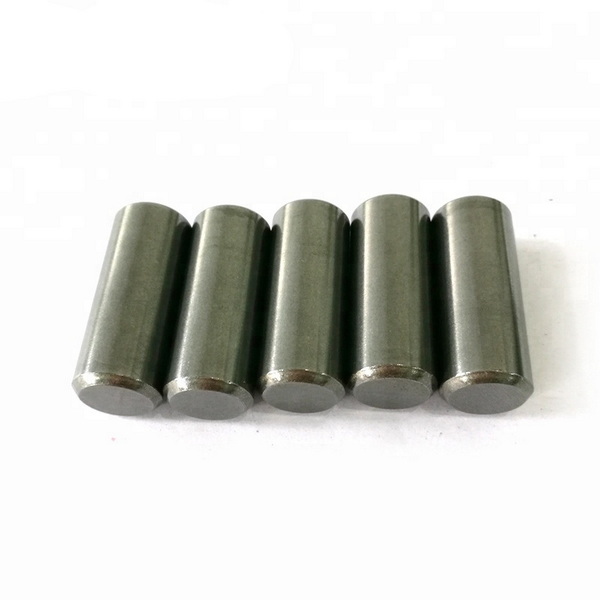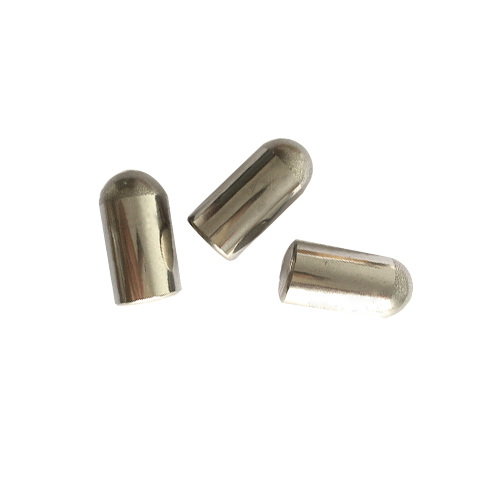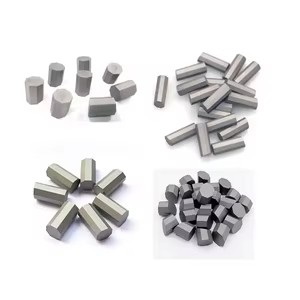Content Menu
● Introduction
● Why Choose German Carbide Studs?
● Industry Overview: Carbide Studs in Germany
>> Market Size and Growth Trajectories
>> Value Proposition for International Buyers
● Manufacturing Technology: How Carbide Studs Are Made
>> Materials and Powder Metallurgy
>> Compaction and Shaping
>> Sintering: Achieving Hardness and Density
>> Machining and Surface Treatment
>> Quality Assurance and Customization
● Profile of Top Carbide Studs Manufacturers and Suppliers
>> BETEK GmbH & Co. KG
>> AFC Hartmetall GmbH & Co. KG
>> AKS Hartmetaltechnik GmbH
>> Wilke Hartmetall
>> HHT Hartmetall
>> Precision Carbide Germany (PCG GmbH)
>> ARNO Werkzeuge
>> New and Emerging German Players
● Innovations and Trends in Carbide Studs Manufacturing
>> Next-Generation Materials and Coatings
>> Sensor Integration and Smart Manufacturing
>> Sustainability and Circular Economy
● Sourcing Carbide Studs from Germany: Practical Guidance
● Key Applications of Carbide Studs
● Conclusion
● FAQ – Carbide Studs Manufacturers and Suppliers
>> 1. Who are the leading carbide studs manufacturers in Germany?
>> 2. What quality standards and certifications do German carbide studs suppliers uphold?
>> 3. Can German carbide studs suppliers provide custom-engineered and OEM parts?
>> 4. What innovations are driving the German carbide studs industry?
>> 5. What are the main applications for German carbide studs?
Introduction
Germany's industrial landscape stands at the forefront of advanced materials technology, with tungsten carbide and carbide studs serving as integral components in a wide array of industrial applications. Carbide studs, prized for their exceptional hardness and resistance to wear, have become indispensable in mining, construction, oil & gas, automotive, and heavy manufacturing sectors. German carbide studs manufacturers and suppliers are globally renowned for their commitment to precision, reliability, and cutting-edge innovation, making Germany a preferred sourcing destination for foreign brands, wholesalers, and OEM clients seeking consistent, high-quality performance.

Why Choose German Carbide Studs?
When it comes to quality and dependability, German firms lead the market with rigorous manufacturing standards, precision engineering, and a relentless drive for innovation. High-performance tungsten carbide rods, precision ground studs, and complex custom-engineered solutions are all hallmarks of this sector. German carbide studs provide exceptional durability under high-stress, high-wear conditions, making them ideal for demanding applications such as mining drilling bits, tire studs, agricultural equipment, and high-pressure grinding rolls (HPGR).
What sets German carbide studs apart is not just high-grade raw material selection and strict process controls but also the manufacturers' ability to deliver reliable OEM and ODM services tailored to specific requirements. Complete product traceability, robust global logistics, and the capacity to handle custom formulations for unique industrial challenges further solidify their reputation as world-class suppliers.
Industry Overview: Carbide Studs in Germany
Market Size and Growth Trajectories
The German carbide market continues to expand, driven by steady growth in core sectors like mining, road construction, and automotive manufacturing. Carbide drill bits and wear studs represent a substantial portion of this growth. Boasting an annual CAGR of nearly 7%, the market's momentum is underpinned by both established blue-chip clients and a new wave of agile international start-ups. Germany's strong export capacity and open approach to OEM partnership further amplify the reach and influence of its carbide studs industry.
Value Proposition for International Buyers
German manufacturers excel in technical consultation, prototyping, low-to-high-volume production, and after-sales service. International buyers benefit from streamlined OEM development, multilingual communication, and a cooperative production ethos. Critical factors such as ISO 9001 certification, adherence to DIN EN standards, and in-factory quality assurance ensure that every batch of carbide studs consistently meets or exceeds performance expectations.
Manufacturing Technology: How Carbide Studs Are Made
Materials and Powder Metallurgy
At the heart of every carbide stud is a fine balance of tungsten carbide powder and metallic binders (most commonly cobalt). German plants source ultra-pure tungsten and cobalt powders, rigorously tested to ensure uniform particle size and chemistry. The tungsten oxide, often derived from recycled or primary sources, is reduced to pure tungsten powder in a controlled hydrogen atmosphere at temperatures ranging from 600°C to 1,000°C. Only powders with exacting particle distribution and purity make it into the next stage.
Powder metallurgy begins with mixing tungsten carbide and the cobalt binder in precisely controlled ratios. The mixture is milled together with ethanol, water, and organic binders to reach the desired granule size and uniformity. The wet slurry is then dried in a hot nitrogen atmosphere, ensuring perfectly spherical powder granules and eliminating moisture—a process that is key for consistent pressing and sintering downstream.
Compaction and Shaping
The dry, binder-mixed powder is loaded into precision molds, where it is compressed under immense pressure—sometimes up to 12 tons per square centimeter—through mechanical or isostatic pressing methods. This forms a “green body,” which, while fragile, closely resembles the final shape of the carbide stud or component. Manufacturers take great care at this stage, as the accuracy and density of the compaction deeply influence the stud's final microstructure and durability.
Sintering: Achieving Hardness and Density
After pressing, the green bodies are carefully placed in vacuum sintering or Sinter-HIP (Hot Isostatic Pressing) furnaces, where temperatures soar above 1,400°C. The organic binder evaporates and the material shrinks by as much as 20% linearly. During sintering, the cobalt binder melts, flowing between tungsten carbide grains and fusing them together into an extremely dense, rock-hard structure. This process imparts the carbide stud with its legendary strength, wear resistance, and impact resilience.
Machining and Surface Treatment
The sintered carbide is now extremely hard but requires precise finishing to ensure optimal fit and performance. Grinding machines embedded with industrial diamond wheels shape and polish the studs to exact tolerances—often within microns. Many German manufacturers add a final cutting-edge step: advanced coatings such as AlTiN (Aluminum Titanium Nitride) or AlCrN (Aluminum Chromium Nitride) are applied through PVD (Physical Vapor Deposition) or CVD (Chemical Vapor Deposition) processes. These coatings exponentially increase the wear and heat resistance of the studs, particularly for applications in high-speed or high-pressure environments.
Quality Assurance and Customization
Consistent quality control checks are carried out at each stage—powder analysis, compact density, dimensional accuracy, hardness, and microstructural integrity. The end product undergoes both laboratory testing and practical in-use simulations, ensuring every batch meets application-specific requirements. For OEM orders, manufacturers can further tailor geometry, material grades, and surface treatments to exact customer specifications.

Profile of Top Carbide Studs Manufacturers and Suppliers
BETEK GmbH & Co. KG
As one of Germany's leading producers of tungsten carbide tool systems and wear parts, BETEK has established global strength in the mining, construction, and oil & gas industries. Their manufacturing combines automation with hands-on expertise, with an emphasis on custom engineering for both large and small batches. BETEK's Germany-based headquarters, combined with international production facilities, ensure both quality and scalability for OEM clients.
AFC Hartmetall GmbH & Co. KG
Renowned for technical precision, AFC is a preferred supplier for high-grade carbide rods and tailored stud solutions. Their collaborative R&D enables tool manufacturers to fine-tune hardness, toughness, and geometry for bespoke applications. This makes AFC ideal for customers requiring stringent performance in high-wear environments.
AKS Hartmetaltechnik GmbH
AKS operates on the cutting edge of custom carbide engineering, focusing on turning design concepts and technical drawings into precise, production-ready studs. Their facilities support micrometric tolerance grinding and ERP-integrated project management, streamlining the journey from order placement to delivered solution.
Wilke Hartmetall
Wilke offers both a broad standard product line and rapid fulfillment for custom bulk orders. Their online integration systems support easy reordering, making them a reliable partner for international brands seeking just-in-time supply for recurring needs.
HHT Hartmetall
HHT provides a comprehensive range of tungsten carbide grades and formulations, meeting everything from basic durability to ultrafine grain, high-performance use cases. Their ISO-certified processes and track record with export clients make them a top pick for buyers prioritizing traceability and repeatability.
Precision Carbide Germany (PCG GmbH)
PCG stands out for its consultative approach and willingness to adapt manufacturing parameters for unique customer demands. OEM clients benefit from hands-on engineering support and technical advice, resulting in optimal design-to-market timelines.
ARNO Werkzeuge
A key player in specialist cutting tools, ARNO supplies solid carbide and surface-enhanced studs for extreme applications, focusing on reliability and longevity in harsh, high-impact workplaces.
New and Emerging German Players
Beyond established brand names, several emerging German enterprises are making their mark with niche, innovative solutions including smart carbide studs with integrated sensors, rapid prototyping services, and expanded export operations for tailored applications such as tire studs or high-pressure grinding pins.
Innovations and Trends in Carbide Studs Manufacturing
Next-Generation Materials and Coatings
The German carbide industry is continuously exploring new alloys, binders, and coating technologies. Developments such as nanostructured carbides, functionally graded materials, and ultra-thin PVD or CVD coatings are setting new benchmarks for wear resistance and longevity. Some producers are experimenting with multi-element alloying, improving both performance and sustainability by recycling and reclaiming waste carbide.
Sensor Integration and Smart Manufacturing
Driven by Industry 4.0, some manufacturers are pioneering “smart studs” with embedded micro-sensors. These enable remote monitoring of tool wear, loading conditions, and vibration, providing platform-level data for predictive maintenance. Such advances minimize downtime and lower the total cost of ownership for end users, particularly in large-scale mining and manufacturing operations.
Sustainability and Circular Economy
German carbide producers are at the forefront of sustainability efforts, leveraging closed-loop recycling systems for carbide waste and excess powders. Many offer buy-back or recycling programs that recover used studs and spent inserts, processing them for reuse with no loss of material performance. These circular initiatives contribute to both environmental goals and long-term raw material security.
Sourcing Carbide Studs from Germany: Practical Guidance
For foreign brands, wholesalers, and OEMs, sourcing carbide studs from German suppliers is a strategic investment. Here are practical tips for a successful partnership:
- Create detailed application briefs, including load requirements, wear environments, and geometric constraints. The more information provided at the onset, the better suppliers can tailor their offer.
- Validate manufacturer credentials. Reputable German suppliers will always provide ISO certifications, process documentation, and references.
- Request prototypes or samples to confirm fit and performance before authorizing full-scale production.
- Establish logistics preferences (Incoterms) and clarify MOQs, lead times, and after-sales support.
- Secure clear IP agreements and NDA protections for custom or proprietary products, particularly if advanced or unique formulations are involved.
Leading German carbide studs manufacturers typically provide rapid communication, a transparent production process, and ongoing technical support to ensure mutual success throughout the product lifecycle.
Key Applications of Carbide Studs
German carbide studs are trusted in settings where downtime or equipment failure is not an option:
- Mining and exploration: Drill bits, cutting heads, and HPGR rolls withstand abrasive ores and extreme impacts.
- Road and construction: Robust tire studs, stabilizers, and surface texturing tools tackle harsh environments and repetitive strain.
- Manufacturing: Wear plates, dies, roll pins, and high-precision guides deliver long-term reliability in automated machinery.
- Automotive OEMs: Anti-slip tire studs, camshaft pins, and valve components benefit from the unique combination of strength and machinability offered by German carbide.
- Agriculture: Harrow teeth, seed drill parts, and wear plates enhance tool service intervals and efficiency in demanding terrain.
Conclusion
Germany's carbide studs manufacturers and suppliers shape the industry's future with an informed blend of tradition, cutting-edge science, and customer-centric flexibility. Whether powering the world's deepest mines, the fastest assembly lines, or the most advanced construction sites, German carbide studs offer unrivaled durability and innovation. Global buyers—whether brands, wholesalers, or forward-looking OEMs—find in Germany a steadfast partner for quality, reliability, and next-generation solutions. As emerging trends like sensor-enabled smart studs, circular material flows, and expanded export services take root, Germany cements its position as a global leader in high-performance carbide technology.

FAQ – Carbide Studs Manufacturers and Suppliers
1. Who are the leading carbide studs manufacturers in Germany?
Germany's leading carbide studs manufacturers include BETEK GmbH, AFC Hartmetall, AKS Hartmetaltechnik, Wilke Hartmetall, HHT Hartmetall, Precision Carbide Germany, and ARNO Werkzeuge. These companies excel in high-precision, OEM-ready solutions for multiple industries.
2. What quality standards and certifications do German carbide studs suppliers uphold?
The vast majority of German carbide studs manufacturers are ISO 9001 certified and follow stringent DIN EN standards. These certifications guarantee material integrity, precise manufacturing, and reliable long-term performance.
3. Can German carbide studs suppliers provide custom-engineered and OEM parts?
Absolutely. Custom formulations, geometric variants, proprietary carbide grades, and tailored surface treatments are routinely available. Manufacturers collaborate closely with OEMs to translate unique requirements into high-performing products.
4. What innovations are driving the German carbide studs industry?
Advancements include nanostructured and multi-phase alloys, thin-film and composite coatings for enhanced durability, as well as sensor-enabled studs for predictive maintenance. Sustainability initiatives like carbide recycling are also gaining momentum.
5. What are the main applications for German carbide studs?
German carbide studs are widely used in mining, construction, automotive, agriculture, manufacturing, and oil & gas. Their superior wear resistance and longevity make them essential wherever extreme conditions prevail.
















